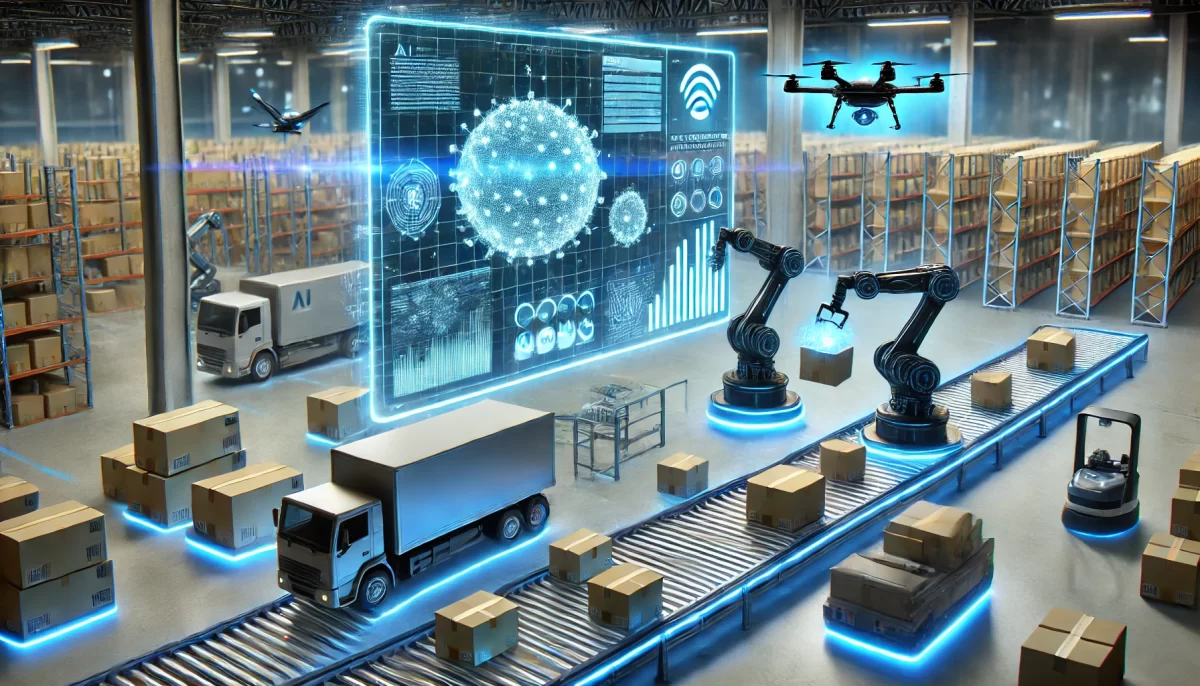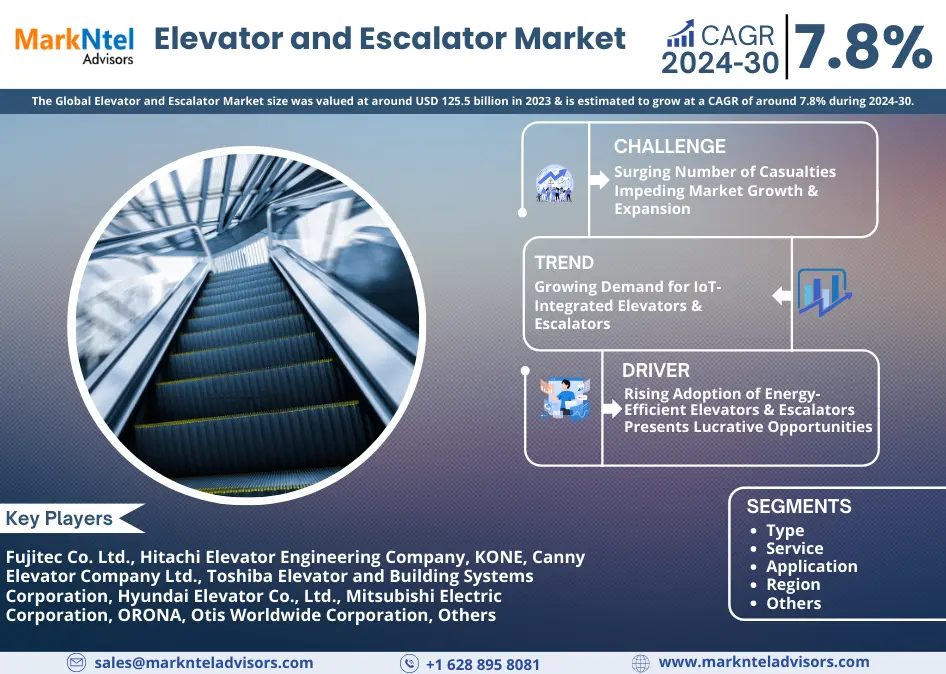AI-Powered Supply Chains: A Game-Changer for Industries

In today’s fast-paced world, businesses are under increasing pressure to enhance efficiency, reduce costs, and meet customer demands swiftly. Supply chains play a crucial role in ensuring seamless operations, but traditional supply chain management methods often struggle with inefficiencies, lack of real-time visibility, and unexpected disruptions. This is where Artificial Intelligence (AI) steps in as a revolutionary force, transforming supply chains into highly efficient, responsive, and intelligent systems. AI-powered supply chains, driven by advanced technology, are proving to be game-changers across industries, offering unprecedented levels of optimization, accuracy, and resilience.
The Role of AI in Supply Chain Management
AI has the potential to revolutionize supply chain management (SCM) by leveraging advanced technologies such as machine learning, predictive analytics, natural language processing, and automation. These technologies enable businesses to:
- Analyze large volumes of data for better decision-making.
- Improve demand forecasting and inventory management.
- Enhance logistics and transportation efficiency.
- Optimize supplier relationships and procurement processes.
- Mitigate risks and respond proactively to disruptions.
Benefits of AI-Powered Supply Chains
1. Improved Demand Forecasting
One of the biggest challenges in supply chain management is predicting demand accurately. Traditional forecasting methods rely on historical data and often fail to account for dynamic market conditions. AI-powered predictive analytics, powered by cutting-edge technology, analyze real-time data from various sources, including social media, economic indicators, and consumer behavior, to provide more precise demand forecasts. This leads to better inventory management, reduced stockouts, and minimized excess inventory.
2. Enhanced Inventory Optimization
Maintaining optimal inventory levels is crucial for preventing overstocking or stockouts. AI-driven inventory management systems use machine learning algorithms to assess historical sales data, seasonality trends, and supplier lead times. These insights, powered by intelligent technology, help businesses streamline their inventory levels, reduce holding costs, and improve cash flow efficiency.
3. Smarter Logistics and Transportation
AI is transforming logistics by optimizing routes, reducing delivery times, and minimizing transportation costs. AI-powered route optimization tools use real-time traffic data, weather conditions, and vehicle availability to determine the most efficient delivery routes. Additionally, AI technology enables predictive maintenance of fleet vehicles, reducing downtime and ensuring seamless operations.
4. Enhanced Supplier Management and Procurement
AI-powered supply chain systems can analyze supplier performance, assess risks, and suggest optimal procurement strategies. Businesses can use AI-driven chatbots to automate negotiations, track supplier compliance, and streamline communication. This leads to better supplier relationships, reduced procurement costs, and enhanced operational efficiency, all enabled by advanced technology.
5. Real-Time Visibility and Transparency
AI provides end-to-end visibility into supply chain operations, enabling businesses to monitor shipments, track inventory levels, and detect anomalies in real-time. Blockchain technology combined with AI enhances transparency by providing a tamper-proof record of transactions, ensuring authenticity, and reducing fraud risks.
6. Risk Mitigation and Disruption Management
Supply chain disruptions, such as natural disasters, geopolitical tensions, and pandemics, can have devastating effects on businesses. AI-driven risk assessment tools analyze global events, weather patterns, and supplier dependencies to predict potential disruptions and recommend contingency plans. This proactive approach, backed by sophisticated technology, helps businesses mitigate risks and maintain continuity.
AI Applications in Different Industries
1. Retail and E-Commerce
Retailers use AI to optimize supply chain operations, enhance customer experiences, and reduce costs. AI-driven demand forecasting helps retailers stock the right products, while AI-powered chatbots improve customer service. Additionally, automated warehouses with AI-driven robots streamline order fulfillment and delivery processes, showcasing the power of technology in retail supply chains.
2. Manufacturing
In manufacturing, AI-powered predictive maintenance ensures machinery operates efficiently, reducing downtime and production delays. AI-driven quality control systems detect defects in real-time, improving product quality and reducing waste. Moreover, AI optimizes production schedules, ensuring the timely delivery of raw materials and finished goods, with technology playing a crucial role in efficiency.
3. Healthcare and Pharmaceuticals
The healthcare industry relies on AI-driven supply chains to manage the distribution of critical medical supplies, pharmaceuticals, and vaccines. AI-powered logistics solutions track shipments in real-time, ensuring the timely delivery of essential medical products. AI technology also helps pharmaceutical companies predict drug demand and prevent shortages.
4. Automotive
Automotive companies leverage AI to enhance supply chain efficiency, reduce production costs, and improve supplier collaboration. AI-driven demand forecasting helps manufacturers plan production schedules, while AI-powered robotics streamline assembly lines. Additionally, AI enhances the management of spare parts and aftermarket services, demonstrating how technology optimizes automotive supply chains.
5. Food and Beverage
AI-powered supply chains in the food and beverage industry improve inventory management, reduce food waste, and enhance traceability. AI-driven analytics help businesses predict demand fluctuations, ensuring fresh produce is delivered on time. AI also plays a crucial role in monitoring food safety by detecting contamination risks, with technology ensuring compliance and efficiency.
Challenges and Considerations in AI-Powered Supply Chains
Despite its numerous benefits, integrating AI into supply chain management comes with challenges that businesses must address:
1. Data Quality and Integration
AI relies on high-quality, structured data to deliver accurate insights. Many businesses struggle with data silos and inconsistent data formats, which hinder AI implementation. Companies need to invest in data integration solutions and cutting-edge technology to ensure seamless data flow across supply chain operations.
2. High Implementation Costs
Deploying AI-powered supply chain solutions requires significant investment in technology, infrastructure, and talent. While AI offers long-term cost savings, businesses must assess their return on investment (ROI) before committing to large-scale implementation.
3. Cybersecurity Risks
AI-powered supply chains involve interconnected digital systems, making them vulnerable to cyber threats. Businesses must implement robust cybersecurity measures, including encryption, access controls, and AI-driven threat detection, to safeguard their supply chain data and technology infrastructure.
4. Workforce Adaptation
AI automation may lead to job displacement in certain areas of supply chain management. Companies need to upskill their workforce and focus on human-AI collaboration to maximize efficiency and innovation, ensuring that technology complements human expertise.
The Future of AI in Supply Chain Management
The future of AI-powered supply chains looks promising, with continuous advancements in technology driving further improvements. Emerging trends include:
- AI-Driven Autonomous Supply Chains: AI-powered autonomous systems will enable fully automated warehouses, self-driving delivery vehicles, and drone-based logistics, redefining technology-driven supply chains.
- Sustainability Optimization: AI will play a key role in promoting sustainable supply chain practices by optimizing energy usage, reducing waste, and improving recycling processes through innovative technology.
- Hyper-Personalized Supply Chains: AI will enable businesses to create hyper-personalized supply chains that cater to individual customer preferences and demand patterns, leveraging data-driven technology.
Conclusion
AI-powered supply chains are transforming industries by enhancing efficiency, reducing costs, and improving resilience. From demand forecasting and inventory optimization to logistics management and risk mitigation, AI is revolutionizing every aspect of supply chain operations. While challenges exist, businesses that embrace AI-driven supply chain solutions and technology will gain a competitive edge in today’s dynamic market. As technology continues to evolve, AI-powered supply chains will become smarter, more autonomous, and increasingly indispensable in the global economy.









